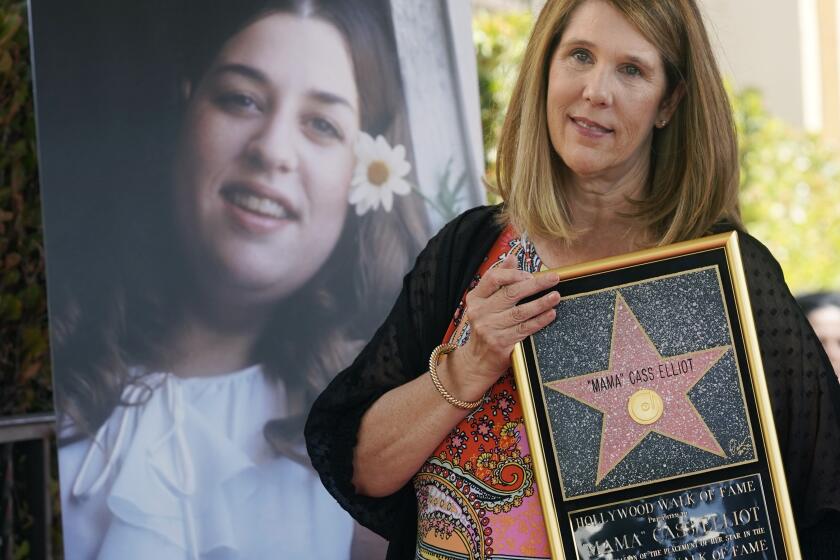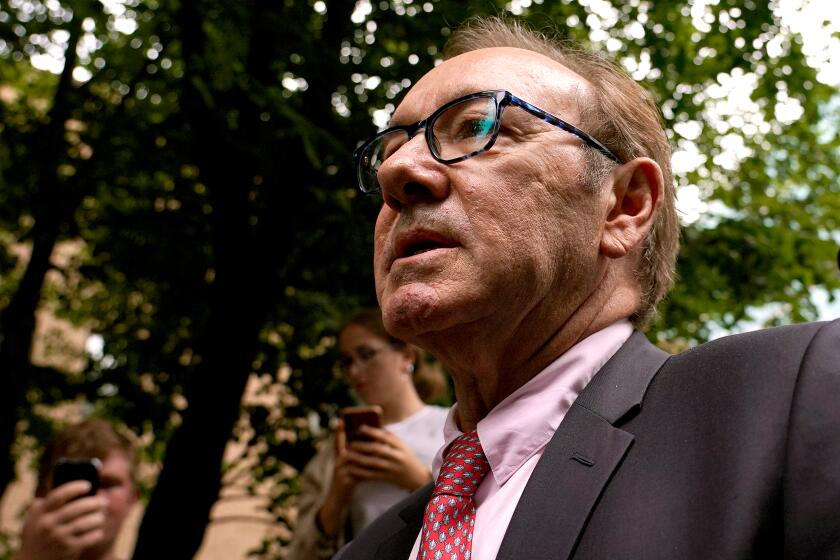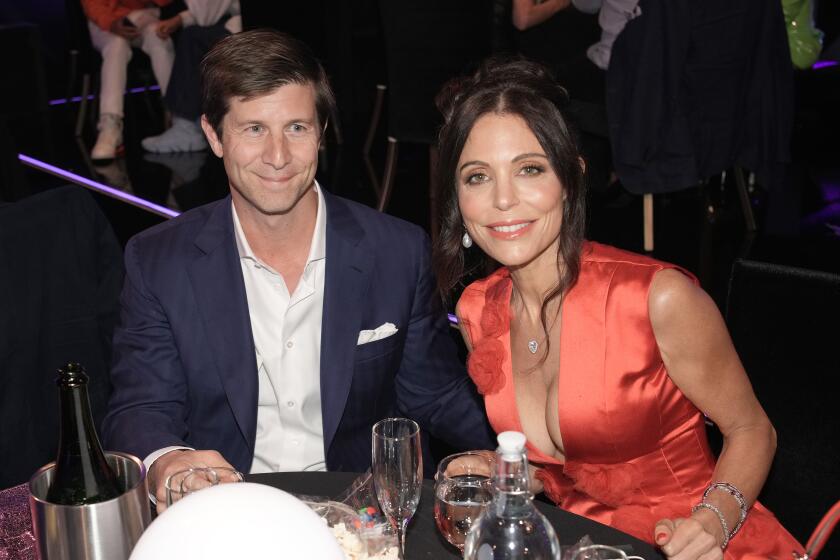Proxy Papers Detail Parade of MGM Takeover Suitors
A flock of companies from Hollywood, Europe and Japan kicked the tires of MGM/UA Communications Co. for more than a year before the company settled on an Australian buyer, according to proxy materials mailed Friday to shareholders.
The proxy materials--which will put the proposed merger with Qintex to a shareholder vote on Sept. 23--disclosed that the ever-restless controlling shareholder, financier Kirk Kerkorian, has not yet decided whether to repurchase MGM’s television operations as initially planned.
Under a 5-month-old agreement with Qintex, a Kerkorian-controlled company had planned to buy the television unit along with the venerable MGM name for $250 million. But the proxy disclosed that MGM is exploring the possible sale of part or all of the television unit and library and said it has granted Qintex the right of first refusal. No asking price was indicated, although a year ago, MGM noted that a price of $100 million to $150 million had been discussed for the television operations.
Tortured History
The fate of the television unit won’t affect the $20-per-share price being offered to MGM/UA shareholders, the company said.
In the proxy, MGM/UA traced the sometimes-tortured history of its effort to sell the company, which began in April, 1988, after separate inquiries were made by Weintraub Entertainment Group and a family partnership led by former 20th Century Fox Film Corp. owner Marvin Davis.
The Weintraub and Davis overtures occurred sometime during the preceding three months, but MGM/UA admitted that details were sketchy. “For the most part, records of such contacts were not maintained,” the company said.
A public acknowledgment of inquiries brought on a stream of potential buyers that would have exhausted any used-car salesman.
From Hollywood, the earliest “looky-loos” included Walt Disney Co., MCA Inc. and Cannon Group, and from Europe, PolyGram N.V.
The largest companies--Disney, MCA and PolyGram--didn’t make offers but Cannon and Davis eventually did in the summer of 1988. Davis’ $875-million bid for most assets was spurned in part because it would have left the seller with its debt of $650 million.
Cannon’s offer was met with skepticism because it offered little cash and no provision for additional capital to flow into MGM/UA.
Degrees of Seriousness
In July, 1988, MGM/UA reached a publicly announced agreement to sell a partial interest to Barris Industries Inc., only to have that deal collapse before the month was out. MGM began looking overseas for a buyer, while at home, two MGM/UA directors--Alan Ladd Jr. and David Gerber--explored the possibility of buying the motion picture and television units, together or separately. MGM/UA said it believes that Ladd and Gerber were unable to raise sufficient financing.
Before the year was out, Sony Corp., C. Itoh & Co., Elizabeth Dickensen Industries and Warner Communications Inc. were among the many firms and individuals that looked at MGM with varying degrees of seriousness. In early 1989, Gulf & Western Industries joined the list by suggesting that an overseas film company co-owned with MCA make a bid, while rival Warner Communications talked of a $17-per-share offer. In the spring, even Fox’s parent company expressed interest.
More to Read
The biggest entertainment stories
Get our big stories about Hollywood, film, television, music, arts, culture and more right in your inbox as soon as they publish.
You may occasionally receive promotional content from the Los Angeles Times.






